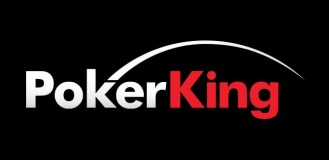17 pros and 15 cons of a career in poker
Check out the pros and cons of playing poker for a living. While it's not perfect, a career in poker is the dream of many people around the world. The freedom and earning potentials are the biggest appeals but there are other rewards and opportunities as well. The secret dangers are also exposed in this article.
 Many are the challenges and rewards in the life of professional poker player and while most of us are familiar with the millions of dollars won at the World Series of Poker, not much is talked about the wins and challenges faced by the ordinary pros.Not everyone is a millionaire, in fact very few can claim their place among them, but that doesn’t mean playing poker professionally isn't worth it for the casual joe. Day in and day out many of us make a living by playing this marvelous game that is poker. The lifestyle it brings is the real reward for us. The ability to work anywhere, to set your own schedule and income, not having to report to a boss are a glimpse of this way of living.Of course, not everything is sunshine and butterflies, there are dangers all around, waiting to punish the inattentive aspiring professionals. The amount of preparation that goes through and the long term thinking must be taking into account before taking the leap.However, don't worry, everything will be laid down to you, so bear with me as we explore the best and the worst aspects of living out of poker! PROS 1.Set your own schedulePoker gives you the luxury of setting your own schedule. You can find action around the clock, at least in the low to mid stakes, enabling you to decide when you want to grind. Note: Certain periods of the day may be better value to play than others but for low/mid stakes this is far less of an issue. You can take breaks in your grind whenever you please. You don’t have to work if you are feeling tired, tilted or not in the mood. This is a tremendous advantage. You also have the freedom to take a vacation any time you want.2.Set you own incomeIn most careers your salary is determined by the company you work for. However, in poker this is not the case. This will, in the long run, be defined by how much and how well you play, along with the stakes you grind. The more work, time and effort you are willing to put in, the more you will get out. It is a very liberating feeling to be able to have such a big influence on your own potential income. You can tailor your grind towards your long and short term financial goals.3.Freedom to travelProvided that you have internet access, electricity and a laptop, you can grind from almost anywhere (territorial restrictions not withstanding) and this gives you the privilege of being able to travel the world while supporting yourself and earning.4.Do something you enjoy"Do something you love" is advice you hear over and over again when trying to choose what career path to follow. If you have a passion for poker, then the opportunity to turn your hobby into your career and primary source of income can be an extremely fulfilling and satisfying.5.The challenge and the gloryPoker is a fantastic way to stimulate your mind and challenge yourself intellectually. You will get a strong feeling of accomplishment as you see yourself learn and improve. If you are a strong player, you will gain recognition and admiration amongst fellow players while striking fear into your opponents.6.Being independent and self-accountableAs poker is primarily a solo pursuit, you will not need to rely on anyone but yourself. While for some people this is a scary feeling, for others this is very liberating. You will not have to worry about incompetent co-workers or a boss breathing down the back of your neck. Knowing you are fully responsible for your own success makes it much easier to analyze what steps you must take in order to improve and achieve your aims.7.Know your level skill and predict your incomeSince you can track your results, once you have a big enough sample size of hands to reduce the impact of variance.to an acceptable level you can analyze your results and see how well you are doing. This is extremely helpful for improving your game and also gives you the ability to predict, to certain degree, your expected income based on sample sizes at your current skill level. 8.Equal opportunity for allPoker has no glass ceiling. You will be self-employed (assuming you are not playing staked) and will not have to worry about being held back due to discrimination. Poker doesn't care about your age, race or gender. The only color poker cares about is green (money)9.Make connections with peopleFrom getting to know people via table chat, to the numerous online poker forums and websites, there are several ways that you can meet new people and make friends through poker. You can develop your game by working with fellow poker players and make new friends/connections that share your passion for the game. Often these connections can prove helpful beyond poker.10.Work remotelyTravelling to and from work can be time consuming, costly and unpleasant. You will most likely be working from home as a professional poker player, thus eliminating the need to travel to work.11.Chance to gain sponsorshipIf you are able to make a name for yourself in the poker world, there is a chance you will be offered a sponsorship whereby you will receive money to represent a certain site or brand. As well as giving you the chance to make extra income this will further raise your profile and open the door to more opportunities.12.Become a coachIf you can show sufficiently good results or an adequate knowledge of poker you may be able to earn additional income by coaching others in poker. Helping other players develop provides a highly rewarding experience.13.Higher income potential than most jobsA skilled poker player can make significantly more than the average yearly wage of any country in the world. Having a high income provides a huge amount of security and utility. You can use your income to live a life of luxury and put yourself in a fantastic position for the future by building for a robust life roll relatively quickly. 14.Build a skill set In order to be successful at poker you will need discipline, emotional control, analytical and mathematical skills, as well as creativity. The more you play the more you will improve these and other skills. This is a superb way to grow as a person. Your new masteries will have a wide range of applications that will go far beyond poker.15.Having something to fall back onShould you decide to focus on something other than poker, it can be of great comfort to know you have a way to generate income should you need to. Even if you have no money left, a player with a history of good results can often find staking offers at ease.16.Possibility of being staked or selling actionBeing staked allows you to play without having to risk your own money. It can also provide an opportunity to play higher stakes than you could afford to while playing on your own bankroll. A drawback of these deals is you will usually have to give up a percentage of your profit to your backer. There are many different options for getting staked and the requirements to it varies. Many stables will also offer coaching to go along with the backing deal, so this can be a great way to improve your skills while not risking your own bankroll. Also selling your action is a good way to decrease your swings.17. Achieve fameThere are multiple ways to become well known in the poker community. A surefire way to make a name for yourself is to consistently show exceptional results online. There are also a lot of opportunities for people to build a fan base using streaming services such as Twitch. Some people from the poker world have achieved a level of fame that goes beyond poker. This also gives them the opportunity to use their status and fan base to branch out into other areas as they already have a strong fan base. CONS 1.Potential lack of structureIn the pros we discussed setting your own schedule. The flip side of this is it is easy to find yourself becoming demotivated and unorganized due to lack of external pressure. A lot of discipline and planning is needed to prevent this from happening.2.No guaranteed minimum incomeIn most jobs you are legally obliged to receive a minimum wage, there is no such guarantee in poker.3.No sick leaveSince you are self-employed, should you get sick and be unable to grind you will receive no income from poker during this time. If you have not planned ahead to deal with this situation, the consequences could be disastrous.4.VarianceVariance is a mathematical term that is used to describe the distribution of results around an expected value. Some formats and game types have higher variance than others but all poker has some level of variance. It can take time to even out. Meaning you may go a long time without making any profit. The other disadvantage of variance is that it means you will need to play a lot of hands to determine if you are positive expected value in the games and stakes you are playing as you must play a large enough sample to overcome the variance in order to see if you are a winning or losing player. Variance can be difficult to deal with on a psychological level. Mental resilience is a necessity.5.Losing moneyIf you are not achieving a positive expected value in the games you are playing, not only will you not make any money, but you will probably lose money you have.6.Need capital to playIn cash games, your chips represent real money. Therefore, in order to be able to play poker you need to have funds to invest. Good bankroll management is absolutely crucial for any serious player. The general consensus is that you will need around 30 buy-ins at your stakes for no limit holdem cash and 70 buy-ins for pot limit omaha cash.7.Risk of burnoutIn order to maximize your expected value, you will need to focus for long periods of time so that you can make optimal decisions. This can be very tiring. Over extended periods, of many months or years, this is a risk factor for burnout syndrome.8.Gambling addiction riskIn the long term poker is primarily a game of skill and the most capable players will always have downswing and only be verified as a winner over a significantly large sample of hands. In the short term there is a large element of gambling in poker because of variance. It is possible to become addicted to the rush of gambling. This can cause you to make negative expected value playing decisions rather than rely on your skill edge to win in the long term in order to win money. This can also be a gateway to other forms of gambling. The results of gambling addiction to be psychologically and financially devastating.9.TaxesTaxes on winnings vary by country. Some countries do not tax winnings at all, while others take varying amounts. Be sure to check the laws in your country and factor this in when calculating your win rate.10.Opportunity costSpending your time playing poker means you will have less time for other activities. Sadly, this is the way with all things in life. You will miss some other opportunities if you spend time playing poker and some of them will not come around again.11.Employment gapDedicating years of your life to being a professional poker player will leave a gap on your cv. This can limit your options if you decide you want to look for employment outside of poker. A lot of potential employers will hold a negative view of poker and this along with your perceived lack of work experience could seriously hurt you chances of finding employment.12.Sedentary lifestyleWhether playing or studying you will most likely be spending the majority of your career sat in front of a screen. This can have negative health consequences, especially if you do not balance it with a healthy diet and exercise.13.Lack of face to face interactionOnline Poker is not a social career. A lot of dedication, time and hard work is needed be successful. This can lead to social isolation. It can also be hard to maintain relationships due to the mental and time demands poker can put on you. Your social skills will most likely start to deteriorate as you will probably be unable to practice them as much as an average person.14.Social prejudiceProfessionals often face misconceptions about their lifestyle from people. Friends, family members and strangers may look down on your career choice. Be prepared to deal with a lot of stupid questions and comments. This can even raise up barriers in you love life.15.Uncertain futureThe landscape of online poker is not static. It changes often and it can change rapidly. Rake changes, technological advancements, software changes, national law changes are just some factors that could potentially change the poker world overnight. See xxx for an in depth discussion on the future of poker.CONCLUSIONChoosing a career in poker is not something to be taken lightly. Many of the pros and cons of poker can be double edged swords depending on your perspective. You must carefully weigh up the risks and rewards to make the decision that is best for you. If you are hardworking, motivated, disciplined, mentally resilient and enjoy a sense of freedom and independence, poker can be an excellent career choice!Poker is clearly not for everyone, but for the right people it can be a wonderful and rewarding life. It is a fascinating and challenging game, and you can make significantly more money than most other careers. The amount of freedom and flexibility poker will provide you unparalleled, probably the biggest selling point of the career. Being your own boss, being able to earn money 24 hours a day and the opportunity to travel to almost any location while still being able to generate steady income is highly desirable.Keep all of this in mind and make sure you know the risks and the rewards of the life.
Many are the challenges and rewards in the life of professional poker player and while most of us are familiar with the millions of dollars won at the World Series of Poker, not much is talked about the wins and challenges faced by the ordinary pros.Not everyone is a millionaire, in fact very few can claim their place among them, but that doesn’t mean playing poker professionally isn't worth it for the casual joe. Day in and day out many of us make a living by playing this marvelous game that is poker. The lifestyle it brings is the real reward for us. The ability to work anywhere, to set your own schedule and income, not having to report to a boss are a glimpse of this way of living.Of course, not everything is sunshine and butterflies, there are dangers all around, waiting to punish the inattentive aspiring professionals. The amount of preparation that goes through and the long term thinking must be taking into account before taking the leap.However, don't worry, everything will be laid down to you, so bear with me as we explore the best and the worst aspects of living out of poker! PROS 1.Set your own schedulePoker gives you the luxury of setting your own schedule. You can find action around the clock, at least in the low to mid stakes, enabling you to decide when you want to grind. Note: Certain periods of the day may be better value to play than others but for low/mid stakes this is far less of an issue. You can take breaks in your grind whenever you please. You don’t have to work if you are feeling tired, tilted or not in the mood. This is a tremendous advantage. You also have the freedom to take a vacation any time you want.2.Set you own incomeIn most careers your salary is determined by the company you work for. However, in poker this is not the case. This will, in the long run, be defined by how much and how well you play, along with the stakes you grind. The more work, time and effort you are willing to put in, the more you will get out. It is a very liberating feeling to be able to have such a big influence on your own potential income. You can tailor your grind towards your long and short term financial goals.3.Freedom to travelProvided that you have internet access, electricity and a laptop, you can grind from almost anywhere (territorial restrictions not withstanding) and this gives you the privilege of being able to travel the world while supporting yourself and earning.4.Do something you enjoy"Do something you love" is advice you hear over and over again when trying to choose what career path to follow. If you have a passion for poker, then the opportunity to turn your hobby into your career and primary source of income can be an extremely fulfilling and satisfying.5.The challenge and the gloryPoker is a fantastic way to stimulate your mind and challenge yourself intellectually. You will get a strong feeling of accomplishment as you see yourself learn and improve. If you are a strong player, you will gain recognition and admiration amongst fellow players while striking fear into your opponents.6.Being independent and self-accountableAs poker is primarily a solo pursuit, you will not need to rely on anyone but yourself. While for some people this is a scary feeling, for others this is very liberating. You will not have to worry about incompetent co-workers or a boss breathing down the back of your neck. Knowing you are fully responsible for your own success makes it much easier to analyze what steps you must take in order to improve and achieve your aims.7.Know your level skill and predict your incomeSince you can track your results, once you have a big enough sample size of hands to reduce the impact of variance.to an acceptable level you can analyze your results and see how well you are doing. This is extremely helpful for improving your game and also gives you the ability to predict, to certain degree, your expected income based on sample sizes at your current skill level. 8.Equal opportunity for allPoker has no glass ceiling. You will be self-employed (assuming you are not playing staked) and will not have to worry about being held back due to discrimination. Poker doesn't care about your age, race or gender. The only color poker cares about is green (money)9.Make connections with peopleFrom getting to know people via table chat, to the numerous online poker forums and websites, there are several ways that you can meet new people and make friends through poker. You can develop your game by working with fellow poker players and make new friends/connections that share your passion for the game. Often these connections can prove helpful beyond poker.10.Work remotelyTravelling to and from work can be time consuming, costly and unpleasant. You will most likely be working from home as a professional poker player, thus eliminating the need to travel to work.11.Chance to gain sponsorshipIf you are able to make a name for yourself in the poker world, there is a chance you will be offered a sponsorship whereby you will receive money to represent a certain site or brand. As well as giving you the chance to make extra income this will further raise your profile and open the door to more opportunities.12.Become a coachIf you can show sufficiently good results or an adequate knowledge of poker you may be able to earn additional income by coaching others in poker. Helping other players develop provides a highly rewarding experience.13.Higher income potential than most jobsA skilled poker player can make significantly more than the average yearly wage of any country in the world. Having a high income provides a huge amount of security and utility. You can use your income to live a life of luxury and put yourself in a fantastic position for the future by building for a robust life roll relatively quickly. 14.Build a skill set In order to be successful at poker you will need discipline, emotional control, analytical and mathematical skills, as well as creativity. The more you play the more you will improve these and other skills. This is a superb way to grow as a person. Your new masteries will have a wide range of applications that will go far beyond poker.15.Having something to fall back onShould you decide to focus on something other than poker, it can be of great comfort to know you have a way to generate income should you need to. Even if you have no money left, a player with a history of good results can often find staking offers at ease.16.Possibility of being staked or selling actionBeing staked allows you to play without having to risk your own money. It can also provide an opportunity to play higher stakes than you could afford to while playing on your own bankroll. A drawback of these deals is you will usually have to give up a percentage of your profit to your backer. There are many different options for getting staked and the requirements to it varies. Many stables will also offer coaching to go along with the backing deal, so this can be a great way to improve your skills while not risking your own bankroll. Also selling your action is a good way to decrease your swings.17. Achieve fameThere are multiple ways to become well known in the poker community. A surefire way to make a name for yourself is to consistently show exceptional results online. There are also a lot of opportunities for people to build a fan base using streaming services such as Twitch. Some people from the poker world have achieved a level of fame that goes beyond poker. This also gives them the opportunity to use their status and fan base to branch out into other areas as they already have a strong fan base. CONS 1.Potential lack of structureIn the pros we discussed setting your own schedule. The flip side of this is it is easy to find yourself becoming demotivated and unorganized due to lack of external pressure. A lot of discipline and planning is needed to prevent this from happening.2.No guaranteed minimum incomeIn most jobs you are legally obliged to receive a minimum wage, there is no such guarantee in poker.3.No sick leaveSince you are self-employed, should you get sick and be unable to grind you will receive no income from poker during this time. If you have not planned ahead to deal with this situation, the consequences could be disastrous.4.VarianceVariance is a mathematical term that is used to describe the distribution of results around an expected value. Some formats and game types have higher variance than others but all poker has some level of variance. It can take time to even out. Meaning you may go a long time without making any profit. The other disadvantage of variance is that it means you will need to play a lot of hands to determine if you are positive expected value in the games and stakes you are playing as you must play a large enough sample to overcome the variance in order to see if you are a winning or losing player. Variance can be difficult to deal with on a psychological level. Mental resilience is a necessity.5.Losing moneyIf you are not achieving a positive expected value in the games you are playing, not only will you not make any money, but you will probably lose money you have.6.Need capital to playIn cash games, your chips represent real money. Therefore, in order to be able to play poker you need to have funds to invest. Good bankroll management is absolutely crucial for any serious player. The general consensus is that you will need around 30 buy-ins at your stakes for no limit holdem cash and 70 buy-ins for pot limit omaha cash.7.Risk of burnoutIn order to maximize your expected value, you will need to focus for long periods of time so that you can make optimal decisions. This can be very tiring. Over extended periods, of many months or years, this is a risk factor for burnout syndrome.8.Gambling addiction riskIn the long term poker is primarily a game of skill and the most capable players will always have downswing and only be verified as a winner over a significantly large sample of hands. In the short term there is a large element of gambling in poker because of variance. It is possible to become addicted to the rush of gambling. This can cause you to make negative expected value playing decisions rather than rely on your skill edge to win in the long term in order to win money. This can also be a gateway to other forms of gambling. The results of gambling addiction to be psychologically and financially devastating.9.TaxesTaxes on winnings vary by country. Some countries do not tax winnings at all, while others take varying amounts. Be sure to check the laws in your country and factor this in when calculating your win rate.10.Opportunity costSpending your time playing poker means you will have less time for other activities. Sadly, this is the way with all things in life. You will miss some other opportunities if you spend time playing poker and some of them will not come around again.11.Employment gapDedicating years of your life to being a professional poker player will leave a gap on your cv. This can limit your options if you decide you want to look for employment outside of poker. A lot of potential employers will hold a negative view of poker and this along with your perceived lack of work experience could seriously hurt you chances of finding employment.12.Sedentary lifestyleWhether playing or studying you will most likely be spending the majority of your career sat in front of a screen. This can have negative health consequences, especially if you do not balance it with a healthy diet and exercise.13.Lack of face to face interactionOnline Poker is not a social career. A lot of dedication, time and hard work is needed be successful. This can lead to social isolation. It can also be hard to maintain relationships due to the mental and time demands poker can put on you. Your social skills will most likely start to deteriorate as you will probably be unable to practice them as much as an average person.14.Social prejudiceProfessionals often face misconceptions about their lifestyle from people. Friends, family members and strangers may look down on your career choice. Be prepared to deal with a lot of stupid questions and comments. This can even raise up barriers in you love life.15.Uncertain futureThe landscape of online poker is not static. It changes often and it can change rapidly. Rake changes, technological advancements, software changes, national law changes are just some factors that could potentially change the poker world overnight. See xxx for an in depth discussion on the future of poker.CONCLUSIONChoosing a career in poker is not something to be taken lightly. Many of the pros and cons of poker can be double edged swords depending on your perspective. You must carefully weigh up the risks and rewards to make the decision that is best for you. If you are hardworking, motivated, disciplined, mentally resilient and enjoy a sense of freedom and independence, poker can be an excellent career choice!Poker is clearly not for everyone, but for the right people it can be a wonderful and rewarding life. It is a fascinating and challenging game, and you can make significantly more money than most other careers. The amount of freedom and flexibility poker will provide you unparalleled, probably the biggest selling point of the career. Being your own boss, being able to earn money 24 hours a day and the opportunity to travel to almost any location while still being able to generate steady income is highly desirable.Keep all of this in mind and make sure you know the risks and the rewards of the life.
Poker rooms

BetKings
- Rakeback up to 60%
- Deposit bonus 600$

PokerKing
- Rakeback up to 65%
- Deposit bonus 1000$

CoinPoker
- Rakeback Contact us
- Deposit bonus 2000$

Tiger Gaming
- Rakeback Contact us
- Deposit bonus 1000$

WPT Global
- Rakeback up to 45%
- Deposit bonus 1200$
Recent blog & news
888poker BLAST turns $1 into $1,000,000 prize
Since Winamax introduced lottery-style Sit and Go games with their groundbreaking Espresso format at the time, interest in these games has only grown. Following suit,...
Millionaire prize won at Winamax Jackpot for €1 buy-in
A player named "Bastuguee" has just won a €1 million jackpot prize in an Expresso poker table at Winamax poker. The game had a €1 buy-in and the odds of the event are...
Winamax May Come to Portugal Soon
The biggest French online poker room, Winamax, has recently launched a webpage with a Portugal domain and a message "coming soon". The page is now offline as...